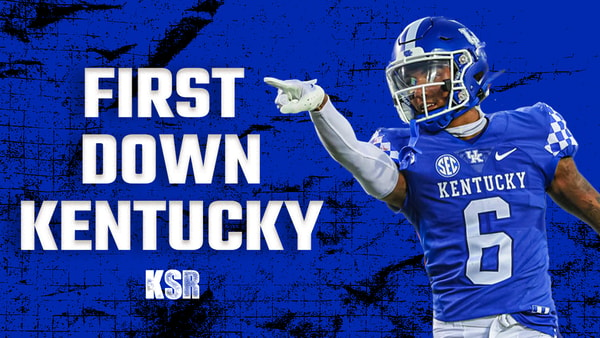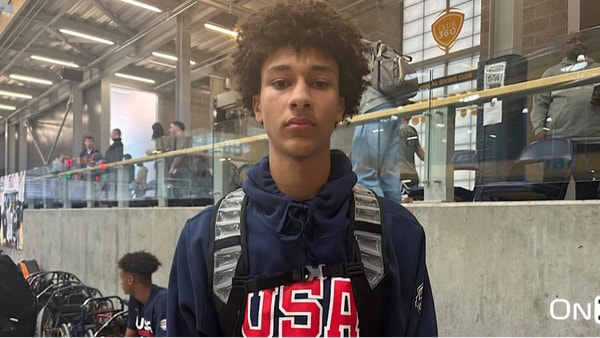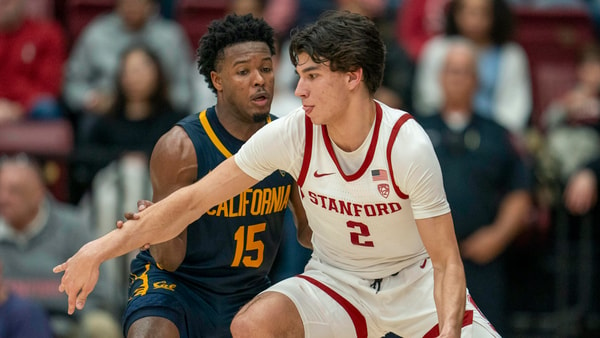[caption id="attachment_198927" align="alignnone" width="600"]

Eclipse Sportsire[/caption]
For the second straight year, a favorite with a funny-spelled name captured the nation's imagination while sprinting toward an easy victory at the Kentucky Derby. Whether or not Nyquist follows in the hoofprints of American Pharoah and wins horse racing's Grand Slam -- or even "just" a Triple Crown -- record attendance yesterday at Churchill Downs (history's second best, despite the rain), as well
early indications of a spike in wagers and television ratings, give the industry hope that the long-desired rebound for racing is upon us.
As I have
chronicled in this space on
numerous occasions, it’s been a rough ride.
An industry-commissioner 2011 McKinsey and Company
report found that horse racing has been suffering a financial free fall: In the prior decade, attendance dropped 30 percent, with wagering down by 37 percent. The study discovered that only a quarter of Americans positively viewed the sport, while less than half of racing
fans reported that they would recommend it to friends.
While Nyquist and American Pharoah may spur the Sport of Kings forward, for a true racing revitalization, the industry and public policymakers will need to take the reins. Here are a few measures that I have outlined in prior columns that are even more timely given the momentus momentum offered by the thrilling three year-olds:
Expanded Gaming
While it may seem like self-interest from this degenerate
gambler, expanded gaming must be made an critical priority by Kentucky's leaders if our thoroughbred industry is going to thrive. Without the ability to offer a fuller range of betting options, and without access to larger purses funded by gambling, Kentucky’s horse tracks will continue to struggle competitively.
Further, expanded gaming can help address an even more urgent public need. Governor Matt Bevin and the General Assembly deserve bi-partisan kudos for meaningfully addressing the state's pension crisis this winter, pumping millions of dollars into our financially periled pension systems. (While I would have preferred tax reform to higher education cuts, elections do have consequences: Bevin reached the winner's circle, while my own gubernatorial campaign pulled up lame in the home stretch.) Still, pension reform has just broken out of the gate; more money is needed to ensure the systems' long term viability while also addressing the Commonwealth's other critical policy priorities.
It used to be controversial to suggest that Kentucky fill this financial gap by expanding gaming and taxing the proceeds. But with thousands of Kentuckians traveling every day to casinos in our neighboring states, the moral objections are far less potent. That's why polls show an overwhelming majority of Kentuckians support expanded gaming.
2017 should be the time for action, especially with the broad bi-partisan consensus that gaming proceeds should be directed to pension reform. So it is incumbent on the industry to quit its thirty-year old infighting, form a united front by resolving issues such number of licenses, locations, and financial return, and get expanded gaming back on the fast track.
Modernize Racing
Central Kentuckians have been spoiled by Keeneland, whose spectacular settings and luxurious environs are unique. Elsewhere, racetracks battle the prevailing stereotype: seedy, downscale venues for older male compulsive gamblers. While the reality is not that bleak, the sport’s reputation is a key reason why younger generations of Americans aren’t flocking to bet on horses with their limited discretionary cash.
Joe Costa, the visionary CEO of Lexington’s Red Mile harness race track, shares an exciting and innovative outlook of the future of horse racing: interactive social media and gaming opportunities that link venues around the world, high-definition video stations across the track, and new technological capabilities that instruct novices on how to fully appreciate and succeed in the handicapping process. It’s this type of approach that could attract Millennials who’ve grown up with video games and smart phones.
Of course, this vision requires a dramatic capital infusion. But while Costa has brought considerable energy to his track through his new instant racing pavilion, his full vision can only be realized through full expansion. Policymakers should be on notice: Improving the product must be part of the deal. If the industry simply lines its pockets with casino and racino proceeds, then it will have all been a wasted effort.
Drug Reform
One of the few sour notes ringing from Nyquist's triumph involves his trainer, Doug O'Neill, and the latter's reputation for misusing drugs: O'Neill has been
charged more than a dozen times for providing improper drugs to his horses, which, not coincidentally, have shown signs of injury and/or broken down more than twice the national average. This issue is not some PETA-inspired animal rights concern: In recent years, a growing number of horse industry leaders have focused attention on equine welfare because of its impact on the bottom line. As legendary multi-Kentucky Derby winning breeder Arthur Hancock notes, many in the industry were taken aback by the McKinsey study, which revealed an
explicit connection between public concern over animal welfare and declining attendance: “Fans don’t want it; it keeps the big betters from betting…The owners who are paying all of the bills finally realized that we need to do something.”
One essential reform would be to ban non-therapeutic performance-enhancing drugs. As I discussed more thoroughly
in this piece several months ago, the abuse of PEDs – most commonly
Furosemide (known more commonly as Lasix) – has been blamed for the dramatic rise of fatal injuries to horses and their jockeys.
Fortunately, the movement to ban race-day drugs has gained significant momentum. It’s been led by the industry itself; most prominently, Arthur Hancock’s wife, Staci, and the Water, Hay, Oats Alliance (WHOA): an impressive
coalition of breeders, trainers, owners and enthusiasts. WHOA’s primary objective is congressional authorization of an independent, non-profit agency to develop and enforce a top flight anti-doping program to restore racing’s integrity. That Keeneland endorsed such a bill –
H.R. 3084, the Thoroughbred Horseracing Integrity Act of 2015, sponsored by Central Kentucky Representative Andy Barr – illustrates the growing support for reform.
Ending Horse Slaughter
For a new generation of horse enthusiasts concerned about equine welfare, much more poignant and powerful than doping is the horrific treatment accorded to thousands of thoroughbreds upon their retirement. As I discussed
in this piece last year, approximately 150,000 U.S. horses are sent every year to foreign slaughterhouses to feed horse-hungry palates overseas.
In recent years, the horse industry has been proactive. Keeneland has joined a growing number of national racetracks that have enacted stringent anti-slaughter
policies that impose penalties – including race bans – on people who sell horses to a slaughter house or to an intermediary auction. Moreover, non-profit organizations that adopt and protect unwanted horses – such as Georgetown’s nationally-lauded
Old Friends home – provide a dignified retirement to thoroughbreds after their racing careers have concluded.
Voluntary industry action, though, has its limits. Banning horse slaughter, and the practices that facilitate it, requires a change in federal law. Last year, the
Safeguard American Food Exports (SAFE) Act, H.R. 1942, was introduced to prohibit the transport of American horses for human consumption. The bill is ingeniously promoted as a food safety initiative: Unlike beef, pork and poultry, horses are not raised to be eaten – there’s no FDA oversight to prohibit the use of toxic drugs – so the practice poses severe human health risks. With growing bipartisan support, this might just be an effective vehicle towards real reform of a gruesome reality.
 Eclipse Sportsire[/caption]
For the second straight year, a favorite with a funny-spelled name captured the nation's imagination while sprinting toward an easy victory at the Kentucky Derby. Whether or not Nyquist follows in the hoofprints of American Pharoah and wins horse racing's Grand Slam -- or even "just" a Triple Crown -- record attendance yesterday at Churchill Downs (history's second best, despite the rain), as well early indications of a spike in wagers and television ratings, give the industry hope that the long-desired rebound for racing is upon us.
As I have chronicled in this space on numerous occasions, it’s been a rough ride.
An industry-commissioner 2011 McKinsey and Company report found that horse racing has been suffering a financial free fall: In the prior decade, attendance dropped 30 percent, with wagering down by 37 percent. The study discovered that only a quarter of Americans positively viewed the sport, while less than half of racing fans reported that they would recommend it to friends.
While Nyquist and American Pharoah may spur the Sport of Kings forward, for a true racing revitalization, the industry and public policymakers will need to take the reins. Here are a few measures that I have outlined in prior columns that are even more timely given the momentus momentum offered by the thrilling three year-olds:
Expanded Gaming
While it may seem like self-interest from this degenerate gambler, expanded gaming must be made an critical priority by Kentucky's leaders if our thoroughbred industry is going to thrive. Without the ability to offer a fuller range of betting options, and without access to larger purses funded by gambling, Kentucky’s horse tracks will continue to struggle competitively.
Further, expanded gaming can help address an even more urgent public need. Governor Matt Bevin and the General Assembly deserve bi-partisan kudos for meaningfully addressing the state's pension crisis this winter, pumping millions of dollars into our financially periled pension systems. (While I would have preferred tax reform to higher education cuts, elections do have consequences: Bevin reached the winner's circle, while my own gubernatorial campaign pulled up lame in the home stretch.) Still, pension reform has just broken out of the gate; more money is needed to ensure the systems' long term viability while also addressing the Commonwealth's other critical policy priorities.
It used to be controversial to suggest that Kentucky fill this financial gap by expanding gaming and taxing the proceeds. But with thousands of Kentuckians traveling every day to casinos in our neighboring states, the moral objections are far less potent. That's why polls show an overwhelming majority of Kentuckians support expanded gaming.
2017 should be the time for action, especially with the broad bi-partisan consensus that gaming proceeds should be directed to pension reform. So it is incumbent on the industry to quit its thirty-year old infighting, form a united front by resolving issues such number of licenses, locations, and financial return, and get expanded gaming back on the fast track.
Modernize Racing
Central Kentuckians have been spoiled by Keeneland, whose spectacular settings and luxurious environs are unique. Elsewhere, racetracks battle the prevailing stereotype: seedy, downscale venues for older male compulsive gamblers. While the reality is not that bleak, the sport’s reputation is a key reason why younger generations of Americans aren’t flocking to bet on horses with their limited discretionary cash.
Joe Costa, the visionary CEO of Lexington’s Red Mile harness race track, shares an exciting and innovative outlook of the future of horse racing: interactive social media and gaming opportunities that link venues around the world, high-definition video stations across the track, and new technological capabilities that instruct novices on how to fully appreciate and succeed in the handicapping process. It’s this type of approach that could attract Millennials who’ve grown up with video games and smart phones.
Of course, this vision requires a dramatic capital infusion. But while Costa has brought considerable energy to his track through his new instant racing pavilion, his full vision can only be realized through full expansion. Policymakers should be on notice: Improving the product must be part of the deal. If the industry simply lines its pockets with casino and racino proceeds, then it will have all been a wasted effort.
Drug Reform
One of the few sour notes ringing from Nyquist's triumph involves his trainer, Doug O'Neill, and the latter's reputation for misusing drugs: O'Neill has been charged more than a dozen times for providing improper drugs to his horses, which, not coincidentally, have shown signs of injury and/or broken down more than twice the national average. This issue is not some PETA-inspired animal rights concern: In recent years, a growing number of horse industry leaders have focused attention on equine welfare because of its impact on the bottom line. As legendary multi-Kentucky Derby winning breeder Arthur Hancock notes, many in the industry were taken aback by the McKinsey study, which revealed an explicit connection between public concern over animal welfare and declining attendance: “Fans don’t want it; it keeps the big betters from betting…The owners who are paying all of the bills finally realized that we need to do something.”
One essential reform would be to ban non-therapeutic performance-enhancing drugs. As I discussed more thoroughly in this piece several months ago, the abuse of PEDs – most commonly Furosemide (known more commonly as Lasix) – has been blamed for the dramatic rise of fatal injuries to horses and their jockeys.
Fortunately, the movement to ban race-day drugs has gained significant momentum. It’s been led by the industry itself; most prominently, Arthur Hancock’s wife, Staci, and the Water, Hay, Oats Alliance (WHOA): an impressive coalition of breeders, trainers, owners and enthusiasts. WHOA’s primary objective is congressional authorization of an independent, non-profit agency to develop and enforce a top flight anti-doping program to restore racing’s integrity. That Keeneland endorsed such a bill – H.R. 3084, the Thoroughbred Horseracing Integrity Act of 2015, sponsored by Central Kentucky Representative Andy Barr – illustrates the growing support for reform.
Ending Horse Slaughter
For a new generation of horse enthusiasts concerned about equine welfare, much more poignant and powerful than doping is the horrific treatment accorded to thousands of thoroughbreds upon their retirement. As I discussed in this piece last year, approximately 150,000 U.S. horses are sent every year to foreign slaughterhouses to feed horse-hungry palates overseas.
In recent years, the horse industry has been proactive. Keeneland has joined a growing number of national racetracks that have enacted stringent anti-slaughter policies that impose penalties – including race bans – on people who sell horses to a slaughter house or to an intermediary auction. Moreover, non-profit organizations that adopt and protect unwanted horses – such as Georgetown’s nationally-lauded Old Friends home – provide a dignified retirement to thoroughbreds after their racing careers have concluded.
Voluntary industry action, though, has its limits. Banning horse slaughter, and the practices that facilitate it, requires a change in federal law. Last year, the Safeguard American Food Exports (SAFE) Act, H.R. 1942, was introduced to prohibit the transport of American horses for human consumption. The bill is ingeniously promoted as a food safety initiative: Unlike beef, pork and poultry, horses are not raised to be eaten – there’s no FDA oversight to prohibit the use of toxic drugs – so the practice poses severe human health risks. With growing bipartisan support, this might just be an effective vehicle towards real reform of a gruesome reality.
Eclipse Sportsire[/caption]
For the second straight year, a favorite with a funny-spelled name captured the nation's imagination while sprinting toward an easy victory at the Kentucky Derby. Whether or not Nyquist follows in the hoofprints of American Pharoah and wins horse racing's Grand Slam -- or even "just" a Triple Crown -- record attendance yesterday at Churchill Downs (history's second best, despite the rain), as well early indications of a spike in wagers and television ratings, give the industry hope that the long-desired rebound for racing is upon us.
As I have chronicled in this space on numerous occasions, it’s been a rough ride.
An industry-commissioner 2011 McKinsey and Company report found that horse racing has been suffering a financial free fall: In the prior decade, attendance dropped 30 percent, with wagering down by 37 percent. The study discovered that only a quarter of Americans positively viewed the sport, while less than half of racing fans reported that they would recommend it to friends.
While Nyquist and American Pharoah may spur the Sport of Kings forward, for a true racing revitalization, the industry and public policymakers will need to take the reins. Here are a few measures that I have outlined in prior columns that are even more timely given the momentus momentum offered by the thrilling three year-olds:
Expanded Gaming
While it may seem like self-interest from this degenerate gambler, expanded gaming must be made an critical priority by Kentucky's leaders if our thoroughbred industry is going to thrive. Without the ability to offer a fuller range of betting options, and without access to larger purses funded by gambling, Kentucky’s horse tracks will continue to struggle competitively.
Further, expanded gaming can help address an even more urgent public need. Governor Matt Bevin and the General Assembly deserve bi-partisan kudos for meaningfully addressing the state's pension crisis this winter, pumping millions of dollars into our financially periled pension systems. (While I would have preferred tax reform to higher education cuts, elections do have consequences: Bevin reached the winner's circle, while my own gubernatorial campaign pulled up lame in the home stretch.) Still, pension reform has just broken out of the gate; more money is needed to ensure the systems' long term viability while also addressing the Commonwealth's other critical policy priorities.
It used to be controversial to suggest that Kentucky fill this financial gap by expanding gaming and taxing the proceeds. But with thousands of Kentuckians traveling every day to casinos in our neighboring states, the moral objections are far less potent. That's why polls show an overwhelming majority of Kentuckians support expanded gaming.
2017 should be the time for action, especially with the broad bi-partisan consensus that gaming proceeds should be directed to pension reform. So it is incumbent on the industry to quit its thirty-year old infighting, form a united front by resolving issues such number of licenses, locations, and financial return, and get expanded gaming back on the fast track.
Modernize Racing
Central Kentuckians have been spoiled by Keeneland, whose spectacular settings and luxurious environs are unique. Elsewhere, racetracks battle the prevailing stereotype: seedy, downscale venues for older male compulsive gamblers. While the reality is not that bleak, the sport’s reputation is a key reason why younger generations of Americans aren’t flocking to bet on horses with their limited discretionary cash.
Joe Costa, the visionary CEO of Lexington’s Red Mile harness race track, shares an exciting and innovative outlook of the future of horse racing: interactive social media and gaming opportunities that link venues around the world, high-definition video stations across the track, and new technological capabilities that instruct novices on how to fully appreciate and succeed in the handicapping process. It’s this type of approach that could attract Millennials who’ve grown up with video games and smart phones.
Of course, this vision requires a dramatic capital infusion. But while Costa has brought considerable energy to his track through his new instant racing pavilion, his full vision can only be realized through full expansion. Policymakers should be on notice: Improving the product must be part of the deal. If the industry simply lines its pockets with casino and racino proceeds, then it will have all been a wasted effort.
Drug Reform
One of the few sour notes ringing from Nyquist's triumph involves his trainer, Doug O'Neill, and the latter's reputation for misusing drugs: O'Neill has been charged more than a dozen times for providing improper drugs to his horses, which, not coincidentally, have shown signs of injury and/or broken down more than twice the national average. This issue is not some PETA-inspired animal rights concern: In recent years, a growing number of horse industry leaders have focused attention on equine welfare because of its impact on the bottom line. As legendary multi-Kentucky Derby winning breeder Arthur Hancock notes, many in the industry were taken aback by the McKinsey study, which revealed an explicit connection between public concern over animal welfare and declining attendance: “Fans don’t want it; it keeps the big betters from betting…The owners who are paying all of the bills finally realized that we need to do something.”
One essential reform would be to ban non-therapeutic performance-enhancing drugs. As I discussed more thoroughly in this piece several months ago, the abuse of PEDs – most commonly Furosemide (known more commonly as Lasix) – has been blamed for the dramatic rise of fatal injuries to horses and their jockeys.
Fortunately, the movement to ban race-day drugs has gained significant momentum. It’s been led by the industry itself; most prominently, Arthur Hancock’s wife, Staci, and the Water, Hay, Oats Alliance (WHOA): an impressive coalition of breeders, trainers, owners and enthusiasts. WHOA’s primary objective is congressional authorization of an independent, non-profit agency to develop and enforce a top flight anti-doping program to restore racing’s integrity. That Keeneland endorsed such a bill – H.R. 3084, the Thoroughbred Horseracing Integrity Act of 2015, sponsored by Central Kentucky Representative Andy Barr – illustrates the growing support for reform.
Ending Horse Slaughter
For a new generation of horse enthusiasts concerned about equine welfare, much more poignant and powerful than doping is the horrific treatment accorded to thousands of thoroughbreds upon their retirement. As I discussed in this piece last year, approximately 150,000 U.S. horses are sent every year to foreign slaughterhouses to feed horse-hungry palates overseas.
In recent years, the horse industry has been proactive. Keeneland has joined a growing number of national racetracks that have enacted stringent anti-slaughter policies that impose penalties – including race bans – on people who sell horses to a slaughter house or to an intermediary auction. Moreover, non-profit organizations that adopt and protect unwanted horses – such as Georgetown’s nationally-lauded Old Friends home – provide a dignified retirement to thoroughbreds after their racing careers have concluded.
Voluntary industry action, though, has its limits. Banning horse slaughter, and the practices that facilitate it, requires a change in federal law. Last year, the Safeguard American Food Exports (SAFE) Act, H.R. 1942, was introduced to prohibit the transport of American horses for human consumption. The bill is ingeniously promoted as a food safety initiative: Unlike beef, pork and poultry, horses are not raised to be eaten – there’s no FDA oversight to prohibit the use of toxic drugs – so the practice poses severe human health risks. With growing bipartisan support, this might just be an effective vehicle towards real reform of a gruesome reality.







Discuss This Article
Comments have moved.
Join the conversation and talk about this article and all things Kentucky Sports in the new KSR Message Board.
KSBoard